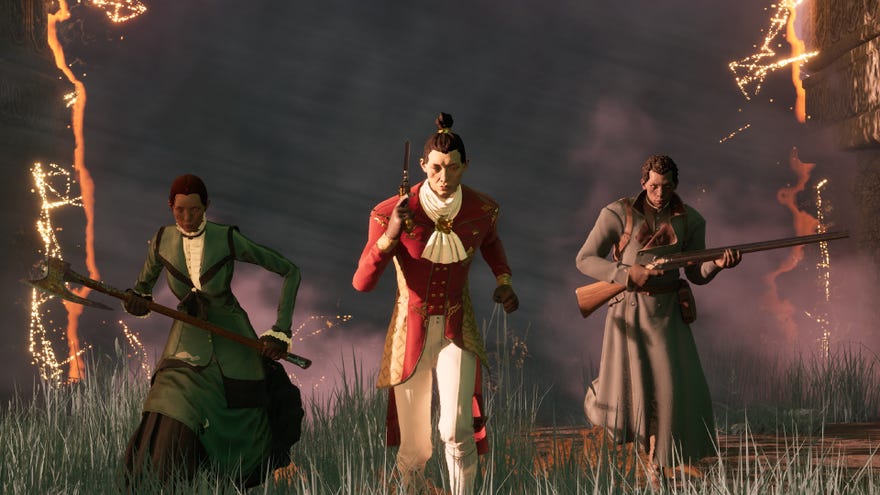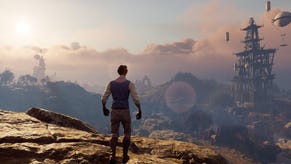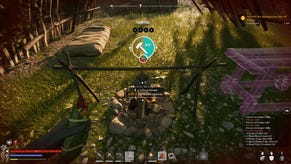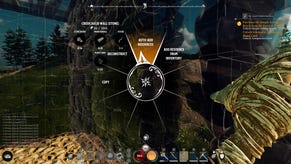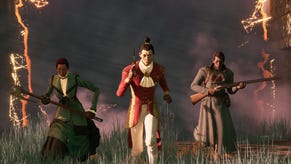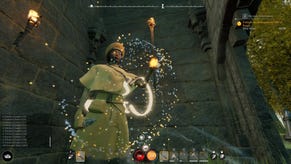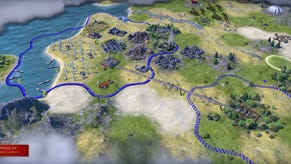Today's new games struggle because "evergreen" hits like Fortnite "pull players towards them at all times", says former BioWare GM
Inflexion's Aaryn Flynn on lessons learned from playtesting Nightingale
Before founding Inflexion in 2021, Aaryn Flynn worked at BioWare. He's got credits on some of the studio's best-loved games, from Baldur's Gate 2 through Star Wars: Knights Of The Old Republic to Dragon Age: Origins and the Mass Effect trilogy. He was BioWare's general manager for several years, but left the company in 2017 following the release of the less-regarded Mass Effect: Andromeda. New survival sim Nightingale is his first early access project, and it's certainly been a learning experience, with Flynn obliged to rethink many of the things he learned about gamedev during his BioWare days. Speaking to me ahead of Nightingale's launch, Flynn talked about the difficulty of making headway as a new developer in an industry where the most successful competing live service titles have effectively become part of the landscape - indeed, a force of "gravity".
Flynn feels that while the games industry has long been dominated by a handful of companies and studios, things are especially tough now for anybody trying to break in - even a Tencent-owned studio with a pedigree, like Inflexion - because in a live service era, the most prosperous games tend to stick around. "The idea that the games industry is a hits-driven business where the majority of the success goes to the minority of the developers, the minority of the studios - everybody knows that and everybody gets that, as harsh as that might be," he told me.
"I think there was this historical pattern that games end, and people stop playing certain games, and so then there's a hunger and a desire for new games and interesting games and improved games," Flynn continued.
"I think the calculus that's different now for players is - the total industry revenue is whatever it is for the year, and that used to be all new games, every year. And then the next year it's all new games again. There's this incredibly thick line now of that revenue, which is games that are five, even 10 years old, like GTA Online, and those games have done so good, and are so exceptional because of the just enormous amount of investment that's been put into them, that they are evergreen."
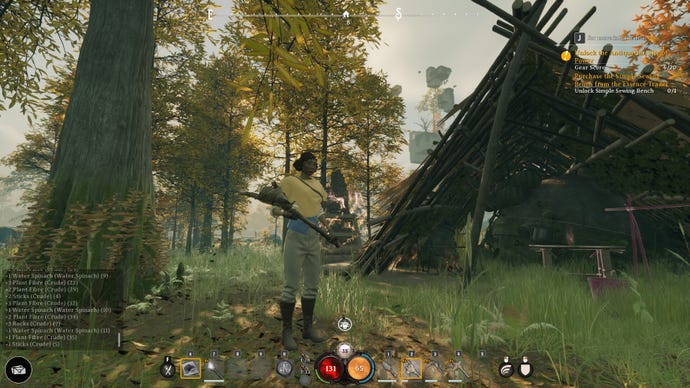
Flynn illustrated the point that "players always have that alternate choice to go and fall back to" with an anecdote about his son's on-going enthusiasm for Fortnite, despite its age. "He's 17, and he has a lot of friends, and when the Fortnite OG mode came out - they all played Fortnite, you know, years ago, and they had all stopped playing Fortnite, but when Fortnite OG came out, that change was enough of a motivation for them to call or text each other and say, hey, we should jump into play.
"And the fascinating thing to me was that Fortnite was already installed on all their machines, already there, there was literally zero barrier, it had already patched itself, there was no barrier to entry. And some of the friends were playing on PlayStation, some were on Xbox, and some were on PC, and it all just worked. And that incredible ease of jumping into a fantastic, compelling experience - you can't beat that, right? No studio can can match that, or very few studios, it's probably fairer to say.
"And so now you've got these other studios, you know, us included, wanting to do something interesting and hopefully compelling and beloved by a community of players, recognising that there's this alternative now, these alternatives that just have this gravity in our industry, and just pull players towards them at all times, through the incredible amount of content, the incredible amount of polish they have."
Flynn feels he's still adapting to this "new calculus that players run in their heads nowadays, as opposed to when they walk into a store and say oh, there's that new game I've been thinking about - yoink, buy it, play it for 30-50 hours, and then put it on your shelf. It's just so different now."
His dream, of course, is that Nightingale will "be an interesting, differentiating experience for hopefully a large enough community of players that we can pay the bills" while the studio polishes up the workings into something that can weather comparison with an "evergreen" hit, like Fortnite. "We run the same playbook that these other studios do, which is you build, you invest, you make it better, you improve, you add to it. And what should happen over time, just like it did for those [existing big games], is players will join - if you didn't start on day one or week one, play in six months, you know!"
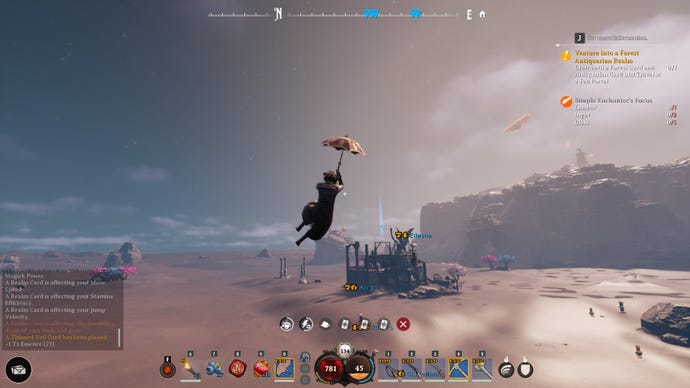
More positively, Flynn suggested that the presence of "evergreen" games has turned players into better playtesters. "We're sometimes at our worst when we get in our own heads and we can't seem to break out of a mental barrier we have," he said. "And really, like so many times, in my experience, players have the answers.
"They're very sophisticated nowadays, they can tell you what they like and what they don't like, they can tell you what they think would make a better experience for them. If you say tell me about this, just talk about this, they're great - they're so so sophisticated nowadays. And again, they have so many examples of games that they put many hours into, and they're super familiar with, of games that have got it right, or at least one little element, and so it's great to talk to them and learn from them. Our challenge becomes how do we implement that effectively while adapting to other things, etcetera. So it's a little bit of a different development mindset."
Nightingale is live now in early access. Here are Flynn's thoughts on how it will evolve before the 1.0 release, and here are some pre-launch impressions from me.
